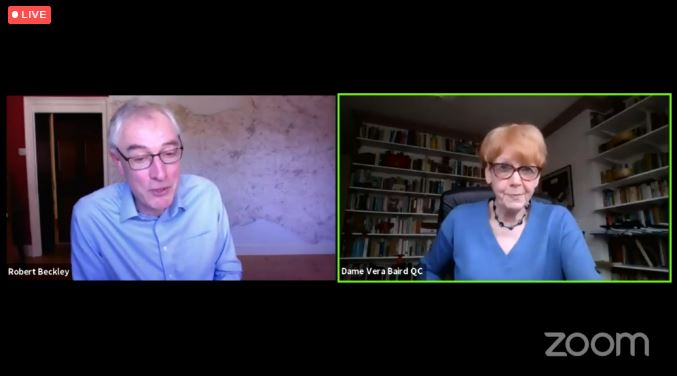The Cumberland Lodge Police Conference has been a key date in the UK policing calendar for the last 40 years and this summer it goes online, with representatives from all levels of the police convening to discuss how to respond to major past harms and injustices, with historians, legal professionals, charity leaders, victim representatives, academics, researchers and civil servants.
The conference topic was launched with three public webinars hosted in January and February 2021. Guest contributors included: Dame Vera Baird (Victims’ Commissioner for England and Wales), Jonathan Powell (former Chief British Negotiator on Northern Ireland) and Chief Constable Simon Bailey (National Police Chiefs’ Council lead for child protection).
Up to 100 people are expected to take part in the Towards Justice: Law Enforcement & Reconciliation conference on 17-18 June 2021, with a view to examining the role of the police and criminal justice in the wake of complex past harms such as: child sexual abuse within institutions, the investigation into Stephen Lawrence’s murder, the Windrush Scandal, the Hillsborough Stadium disaster, The Troubles in Northern Ireland and the contaminated blood products scandal.
As is the tradition at Cumberland Lodge, participants of all ages, perspectives and levels of seniority are encouraged to exchange views and share ideas openly and on an equal footing. The conference is held under the Chatham House Rule to enable frank and productive conversations, and the programme is designed to encourage candid conversation and interaction.
Amongst the guest speakers are: Sir George Hamilton (former head of the Police Service of Northern Ireland); Michael Lockwood (Director General of the Independent Office for Police Conduct); Assistant Commissioner Robert Beckley (overall command of Operation Resolve, the criminal investigation into the Hillsborough disaster); and Susan Hemming (Director of Legal Services at the Crown Prosecution Service).
Where does policing fit in?
Olivia Pinkney, Chief Constable of Hampshire Constabulary and NPCC Lead for Local Policing, said: ‘Never has there been a more important time to reflect on past harms – how society can best acknowledge them for what they are, and then build a more resilient society for the future.
‘So where does policing fit in? We have seen these harms over the decades, in health, sport, justice, faith, government institutions and more, in the UK and beyond. And, sometimes, in policing itself, which brings added mistrust to investigations.
‘Does police involvement help or hinder that resilience building, whether or not there is ultimately a criminal justice process to address the harm caused?’
Cumberland Lodge has been hosting meetings about policing and criminal justice matters since the 1950s, and its summer Police Conference has been convened since 1981. Guided by a steering committee of police leaders and serving police officers – chaired by Chief Constable Olivia Pinkney – it tackles key issues at the forefront of the police agenda.
‘Recognition and healing’
Canon Dr Edmund Newell, Chief Executive of Cumberland Lodge, said: ‘This conference offers a chance to step back and spend time reflecting on how we address past harms and injustices, as a society.
‘What can be gleaned from victim perspectives and previous attempts to bring about lasting reconciliation, and how can that insight inform from the policing and criminal justice response? How can we support the pursuit of wider social justice and avoid repeating the mistakes of the past?’
The 2020 Cumberland Lodge conference was postponed until this summer in light of the pandemic. The three webinars held earlier this year set the scene for the discussions by examining: Responses to Past Harms, Insights into Truth and Reconciliation, with a focus on lessons from Northern Ireland; and Victim Perspectives on Past Injustices.
Each webinar was accompanied by a short briefing document written by Martina Feilzer, Professor of Criminology and Criminal Justice at Bangor University, who is supporting the project as a freelance research associate.
Another independent briefing document will be published ahead of the June conference, to guide and inform discussions, and Professor Feilzer will write a summary report on the key findings and recommendations that emerge from the conference, to be launched in Westminster later this year.
Further information
Our media partner for this conference is Policing Insight.

The College of Policing supports the conference by selecting officers from the Fast-track and High Potential Development Scheme (HPDS) to take part. Fully funded bursaries are also available to help doctoral students working in relevant fields to take part, with support from the Dawes Trust.


